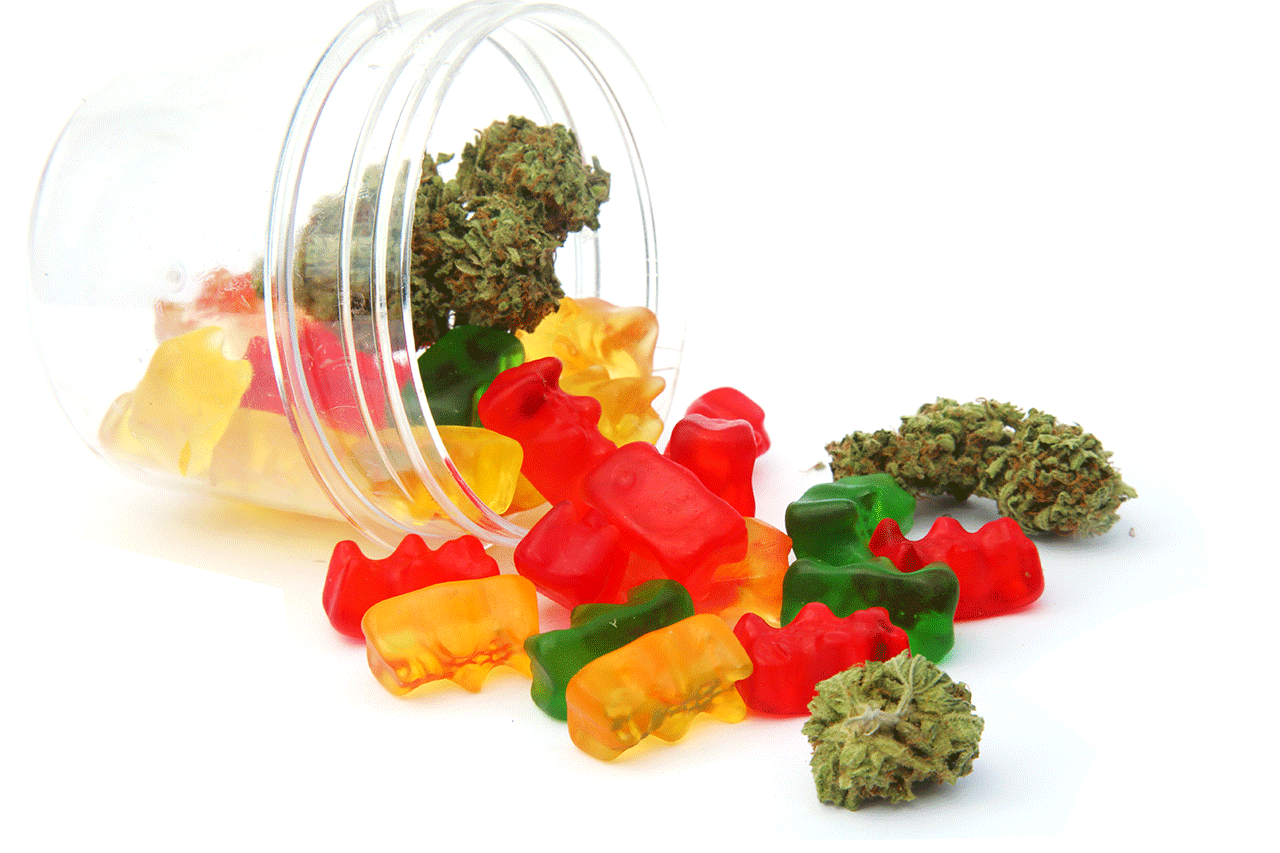
THC metabolites stay in the body longer after eating edibles than smoking marijuana. This is because edibles are absorbed through the digestive system.
People who consume edibles can have up to a month of detection periods in their urine, saliva, and hair! This article will help you understand how long THC remains in your system after consuming edibles.
Urine
When it comes to drug testing, how long THC lingers in your system after consuming edibles depends on several factors. First, the type of edible you ingested will affect how long it takes for THC to be metabolized by your liver. Next, the quantity you consume will impact how long THC remains in your system. Finally, the frequency of your marijuana usage will also influence how long THC remains in your system.
For most people, the effects of a single dose of cannabis are gone within three to 12 hours. However, THC can remain in your body for longer if you are a regular user. This is because habitual use of cannabis leads to tolerance, which requires higher and more frequent dosages to feel the same effects.
After your body absorbs THC, it undergoes a process known as “first-pass metabolism,” where it is converted into a more potent form of THC called 11-hydroxy-THC. This process takes place in your liver and digestive tract. Once the THC is metabolized, it is eliminated from the body via urine and saliva. THC metabolites are also stored in your fat cells, where they can remain for weeks or even months.
THC metabolites can be detected in your urine for up to three days after consumption of an edible. However, if you are a regular user, this detection time can extend up to two weeks.
Urine tests are the most commonly used drug test to detect marijuana usage. However, there are other types of drug tests that can be used, including blood and hair. Hair tests are more revealing than urine tests, as they can show THC metabolites from marijuana usage up to 90 days after use.
It is important to note that other substances such as vitamins, cough medicines, ibuprofen, and efavirenz (an anti-HIV medication) can impact your urine test results. In addition to affecting urine tests, edibles can also have a negative effect on your ability to pass a saliva or blood test. Therefore, it is a good idea to abstain from marijuana use until you can pass these types of drug tests.
Saliva
When you take a THC edible it is absorbed through your digestive system and can stay in your system for several hours. The exact amount of time will depend on the dosage, your tolerance level, and how your body metabolizes THC. It can also be affected by your physical attributes – smaller people will feel the effects of an edible more quickly than larger ones, and the same dose can affect each person differently.
The effects of edibles can be a little bit harder to determine than when you smoke or vape because the THC takes a while to kick in and start working. Typically, it can take between two and four hours for the high to begin, but this will vary from person to person. Once the effects kick in, they can last up to 12 hours. This is because the THC has to travel from the gastrointestinal tract to the brain.
If you are a casual user, it is unlikely that your edible will show up in a urine test, but if you are a heavy user, it could remain in your system for up to 21 days. Saliva tests can detect THC from edibles, but they are less reliable than urine or blood tests because outside contaminants can affect the results. Hair follicles can also contain THC metabolites from edibles, but this method of testing is very difficult and time-consuming to perform.
When you consume an edible, it breaks down into THC and a metabolite called 11-hydroxy THC. This metabolite can be detected in your system for 30 to 90 days, depending on how much THC you consume and your individual metabolism rates. This is why most authorities don’t use hair to test for weed use, but it is an effective way to detect long-term cannabis use.
Blood
If you eat an edible, the THC is absorbed by your digestive tract before it can reach your bloodstream. This is why it can take up to two hours for the effects of an edible to kick in. Once the cannabinoids do get to your bloodstream, they will stay in your body for a couple of days if you are a heavy user.
Edibles are a great way to consume cannabis for people who don’t like the taste or smell of smoke but want the benefits of marijuana. However, consuming edibles can be dangerous and lead to heart-related problems such as irregular heartbeats and an increased risk of seizures. Moreover, consuming too many edibles can lead to a dangerously high blood THC level. It is important to know how long edibles stay in your system so that you can plan accordingly if you’re going to be using them.
A lot of people use THC edibles because they last a longer time than smoked marijuana and also provide a more calming effect. If you’re wondering how long edibles stay in your system, making you high, it depends on a few factors, such as the dosage, your tolerance, and your metabolism. But the most important factor is your tolerance level because if you’re a regular cannabis user, the edibles will remain in your system for much longer than a casual consumer.
Once the THC enters your bloodstream, it is metabolized by your liver and transformed into 11-hydroxy-THC. This metabolite is a more potent form of THC and can produce stronger effects than THC itself. The metabolite will then be circulated throughout your body until it is eliminated through urine. The length of time the metabolite stays in your system depends on how much THC you consume and the type of edible you eat.
The amount of THC left in your body also depends on how you use the edible and what type of drug test you are taking. Saliva tests have the shortest window of detection and can pick up traces from a single day of consumption, while blood and hair testing can detect THC remnants for up to three months in a daily consumer.
Hair
Marijuana edibles have become increasingly popular as a discreet and smoke-free way to enjoy cannabis. Typically consumed as gummies, candy bars, or cookies, marijuana edibles contain a concentrated amount of THC. This THC enters the bloodstream and crosses into the brain, where it induces effects. The THC in edibles can remain in the body for a longer period of time than when smoking or vaping. This can cause users to overdose on the substance and cause dangerous side effects.
How long THC from edibles stays in the body depends on a variety of factors, including the type of edible, dosage, and method of consumption. Unlike smoked marijuana, which is immediately eliminated by the lungs, edibles are absorbed through the digestive tract. This can take up to two hours before the THC is fully metabolized and begins to have an effect. For this reason, it is easier to overdose on edibles than smoked marijuana.
THC metabolites can be detected in urine for up to three days after consuming an edible. It is important to note that the detection window of THC metabolites in urine varies from person to person. This is due to differences in metabolism and the frequency of use. THC metabolites can also be found in the saliva of users for up to 12 hours after consuming an edible.
When ingested orally, THC is absorbed through the stomach and digestive system and then into the bloodstream. This process can take up to two hours before the THC reaches the brain and produces an effect. THC can also be absorbed through the skin and into the lymphatic system, which can then carry it to other organs in the body.
Edibles can stay in the blood for up to 30 days for chronic and heavy users of cannabis. This is because THC can be deposited into the body’s fat cells. This fat-soluble compound is then eliminated in the feces and urine.
Understanding how THC in edibles can affect drug tests before consuming them is important. If you are a regular consumer of cannabis and have a drug test coming up, you may want to avoid edibles in the weeks leading up to your appointment. This will give you more time for your body to eliminate the THC before it can show up on a test.
RELATED ARTICLES
Latest Articles
 Unlocking Success: Mastering Bank PO Interview PreparationIn EducationApril 24, 2024For banking careers, PO interviews stand as formidable […]
Unlocking Success: Mastering Bank PO Interview PreparationIn EducationApril 24, 2024For banking careers, PO interviews stand as formidable […] The Strategic Value of Purchasing FontsIn TipsApril 18, 2024In today’s visually driven world, fonts are more […]
The Strategic Value of Purchasing FontsIn TipsApril 18, 2024In today’s visually driven world, fonts are more […] Revolutionizing Business: How AI Transforms Customer Experience in the Inflatable IndustryIn BusinessApril 16, 2024Inflatable water slides are the epitome of summer fun, […]
Revolutionizing Business: How AI Transforms Customer Experience in the Inflatable IndustryIn BusinessApril 16, 2024Inflatable water slides are the epitome of summer fun, […] Most Asked Microservice Interview Questions For 2024In TechnologyApril 2, 2024To keep up with changing trends in the tech industry […]
Most Asked Microservice Interview Questions For 2024In TechnologyApril 2, 2024To keep up with changing trends in the tech industry […] Best JavaScript and CSS Library In 2024In TechnologyApril 2, 2024With the ever-expanding functionality of web […]
Best JavaScript and CSS Library In 2024In TechnologyApril 2, 2024With the ever-expanding functionality of web […] Front-End Development Trends to Follow in 2024In TechnologyApril 2, 2024For better engagement, the front-end development of […]
Front-End Development Trends to Follow in 2024In TechnologyApril 2, 2024For better engagement, the front-end development of […] Simplifying Mealtime: Meal Prepping for a Family of FourIn UncategorizedMarch 22, 2024In the hustle and bustle of daily life, planning and […]
Simplifying Mealtime: Meal Prepping for a Family of FourIn UncategorizedMarch 22, 2024In the hustle and bustle of daily life, planning and […] How to Freeze Dry Candy With And Without a Machine?In FoodFebruary 27, 2024A candy lover constantly searches for novel and […]
How to Freeze Dry Candy With And Without a Machine?In FoodFebruary 27, 2024A candy lover constantly searches for novel and […] How to Get Something Out Of Your Eye Immediately?In healthFebruary 27, 2024Getting something inside your eyes can be frustrating […]
How to Get Something Out Of Your Eye Immediately?In healthFebruary 27, 2024Getting something inside your eyes can be frustrating […] The Evolution of Remote Control Technology: From RC Cars to DronesIn TechnologyFebruary 22, 2024Remote control technology has come a long way since […]
The Evolution of Remote Control Technology: From RC Cars to DronesIn TechnologyFebruary 22, 2024Remote control technology has come a long way since […] Unveiling the most popular carnival costumes: A colorful parade of creativityIn FashionFebruary 19, 2024In the world of festivities and merrymaking, few […]
Unveiling the most popular carnival costumes: A colorful parade of creativityIn FashionFebruary 19, 2024In the world of festivities and merrymaking, few […] Custom GPTs: The Next AI Opportunity for BusinessesIn Business, TechnologyFebruary 14, 2024The rise of artificial intelligence has transformed […]
Custom GPTs: The Next AI Opportunity for BusinessesIn Business, TechnologyFebruary 14, 2024The rise of artificial intelligence has transformed […]
stopie.com is a participant in the Amazon Services LLC Associates Program, an affiliate advertising program designed to provide a means for sites to earn advertising fees by advertising and linking to Amazon.com.
Clicking on an Amazon link from stopie.com does not increase the cost of any item you purchase.
We will only ever link to Amazon products that we think our visitors may be interested in and appreciate learning more about.



